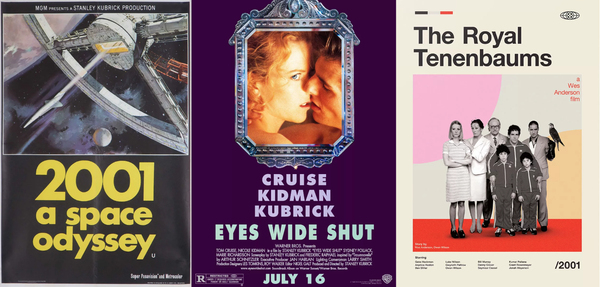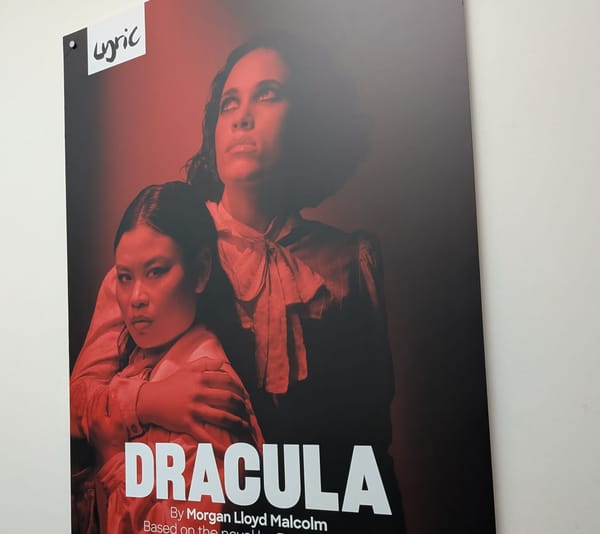my bipolar journey, pt. 2
Another normal day for me.

I wrote for the first time about my rollercoaster 2025 back in April. Now that the rollercoaster has slowed, I thought it would be interesting to pick up the story and fill in some of the gaps. If you want to read part one first, you can do so below.

The first thing to note, after bringing my writing journey up to date this week, is that whatever you have, or have not, is unique to you. It is fun reading about writers but you cannot learn much from them. They each have a unique process that they have developed from the inside out. Simply copying your favourite writer's tricks will not help you much. As the operatic soprano Zinka Milanov is famous for saying, even if she never said it: "Either you got the voice or you don’t got the voice: and I got the voice."
So it is with mental illness. My experiences might reassure you, maybe you pick up a tip, but fundamentally this combination of experiences will only ever be mine. My description of it will only ever be an approximation. This is why I steer away from labels, not only in writing about music or books, but in health matters too. The DSM is a very poor document indeed, created by the wrong people for the wrong reasons, but it is still useful. Up to a point.
The other point to note is that the first article was a real effort. I had several people at work read it before I shared it widely because I feared the response. It turns out that rather more of my colleagues than I ever guessed had their own experiences. Some of them were eye-opening indeed. But I do want to thank everyone who got in touch, in all the forms of communication open to us today. I was the fool who put his head above the parapet but it didn't get shot off. And others followed.
The Drugs: To Be or Not To Be?
This update came about after stumbling across a new song by Hayley Williams called Mirtazapine. I am intimately acquainted with Mirtazapine, as many of you will be.
For when the heart's a sinking stone
That's smashing, fusing to your bones
For when you're crying at the sky
And losing all your appetite
Mirtazapine
You make me eat, you make me sleep
Mirtazapine
You let me dream, you let me dream
I don't know what precise combination of DSM labels belong to Hayley Williams, but her lyrics suggest it is depression plus or minus a few other things, most likely anxiety. It could be on a scale of severity but if she is taking Mirtazapine on its own she will be on the milder side of madness. Mild! Ha!
If you know Mirtazapine you will know that it is an older form of antidepressant, an alpha-2 antagonist that belongs to a group of tetracyclic medicines. Nobody knows how it works but the most likely explanation is that it increases levels of serotonin and similar chemicals in the brain. Nobody really knows why this helps alleviate depression because it certainly is not caused by insufficient serotonin. Note: nobody knows exactly how these drugs work, even their creators.
The key distinguishing feature of Mirtazapine, unlike all the other antidepressants I know of, is that it makes you seriously sleepy, which is actually an unwanted side effect of the drug. I came across it during a period of insomnia and it fixed the insomnia immediately. It took thirty minutes to knock me out. But after a while, the body being so unfathomable but also infuriating, your body learns about Mirtazapine and changes how it processes it. In time, its effectiveness wears off.
Even worse than that, the next time you go back on Mirtazapine, your body remembers it. It will never be as effective again, ever. Never again will you be blessed with a lie-in as you were that first time.
If you have read part one of this series, you will know that I got very excited when a doctor suggested I might have ADHD. I cannot stress how disappointing I find the label antidepressant. It is just as wrong as almost everything else in the mental health industry. For a start, when I took it that first time, I was certainly not depressed. I could not sleep because I had too much energy and was overly optimistic about every breath I took that spring, in 2014. I was on a high.
I hoped I had ADHD because it is not a mental illness, more of a chemical condition that is better understood in some ways. The ADHD drugs work, and if I only had ADHD then I was not mentally ill. Although certainly not normal, my brain was not mad. It was not to be.
The outcome was that I certainly had cyclothymic disorder, possibly bipolar type 2, and 'possibly' ADHD. In other words, I might be both mad and hyperactive! This was not a possibility I had expected. Anyway, I wasn't naughty enough at school so ADHD went out the window and I was back where I started.
I was introduced to a new character: the antipsychotic. Now, this sounded as alarming to me as it might do to you. I swallowed, my mouth suddenly as dry as Mirtazapine had once made it. Apart from the annoying fact that most people don't understand the difference between psychosis and psychopath, it was self-evident that I was not experiencing (and have never experienced, thank God) psychosis.
As I walked away, clutching my white paper bag, I smiled. No more antidepressants, those ordinary things that everyone is on. Now I was in a new club: the antipsychotics party. I was dangerous. If this got out, people would be even more cautious around me. What if he snaps?
As it has been explained to me, the label antipsychotic is just as flawed as the label antidepressant. They are useful to healthcare professionals only. As far as I am concerned, my condition has not changed since I was 20, whatever label or drug you choose to use. Yes, there are new medicines now that were not available then, and they work in different ways, but my condition is what it is, and it's a lot deeper than a single word.
The Other Stuff
I wrote last time that whatever I ended up being labelled as, I would need to do more than just take a pill, and so it proved. I signed up for a 10k charity run in September, having not run that far in about forty years. I recently did my first 5k on sand, so I know that I can do the 10k even if I walk half of it, inside the two hour time limit.
I'm doing some meditation stuff, which I have always done, but I really like these ones by Wild Grace Wellness. I do a lot of walking and a lot of stretching, but I would not really call what I do yoga. Me being a writer and a tech pro, it is all documented on Strava. (Not a tech bro!)
I have friends who have various conditions, some who have tried the meds and some who have not. I would say you get to make your own choices, but most of the people I know tend to take the meds and do the other stuff. What I have found is that the other stuff is only truly effective when used on top of the meds. Several friends disagree with this, and fine.
The Others
Another reason I am writing this now is simply that song Mirtazapine, and a wish to update or write more about neurodiversity and mental illness in the creative arts. I have written more about music this year than anything else, but I have also reviewed books. I can recommend this one by Amber Medland, a writer I met once at a party but feel like I have known forever. She writes very well on ADHD. She is the only other person I know who also reads both the LRB and the TLS.
There are a few landmark works on mental illness and drugs but the first one I became aware of was a blockbuster in the 90s, Prozac Nation. There is a movie as well if you don't read, which underlines how enormous that book was.
I cannot quite shift the idea that people think mental illness is somehow cool these days. It certainly was not cool in the 1990s, or even in the 2000s, and nobody really talked about it. This weekend's celebrations of the life of England cricketer Graham Thorpe should tell you it is not something you should want to have in your life. Or in any of your friends' lives, but I can promise you that at least one of them is suffering right now, today. Your challenge is simply to discover which one.
The only thing that bothered me as I wrote this second piece is that whatever I have is considered mild. I am always on close to the minimum doses. Believe me, it does not feel mild in any way. Labels are intended mainly for doctors. Yes, a doctor who sees serial killers will consider me (more or less) normal. But what is normal? I found this year that most of the people I know are not quite as normal as I had previously thought.
The only thing that does not appeal to me is therapy. Someone on Instagram, a poet, said she would rather talk to another sufferer than a professional therapist. That sums up my attitude.
If you have studied mental illness from a book, I do not quite trust you. If you have lived it, I'm all ears. And I can get that for free. There are a lot more people I can ask in my life than I ever expected there would be.







